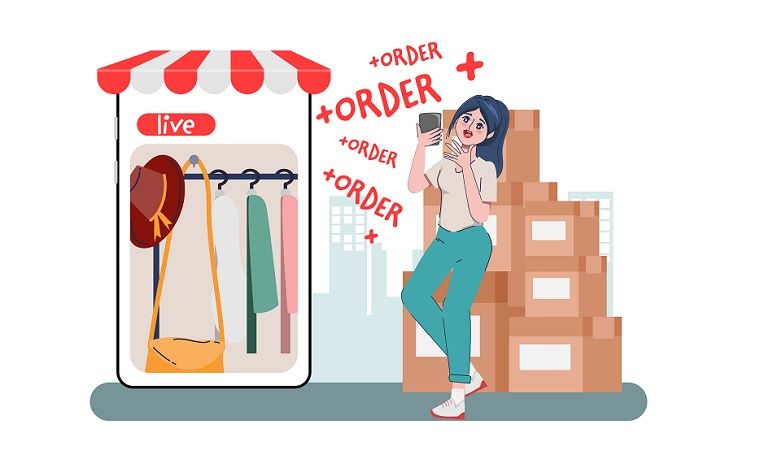Automated Dropshipping 2025: How Dropshippers Can Make the Most of Their Business
Latest update: June 26, 2025

For dropshipping businesses, time isn’t just money — it’s a chance to gain an edge and stand out from the competition. If you’ve been searching for ways to streamline your dropshipping, you’re not alone. Many sellers have tried various automation tools, but even today, fully automating every step remains a challenge due to the complexity of connecting multiple platforms like product sourcing, sales channels, fulfillment centers, and shipping providers.
In this article, we’ll explore what automated dropshipping really means, why manual operations may be holding you back, how AI is reshaping the future, and practical ways to implement automation tools like DSers to grow your business efficiently.
What Is Automated Dropshipping
Automated dropshipping refers to the use of software and tools to streamline and manage routine operations in a dropshipping business. Instead of manually handling tasks like placing orders, syncing tracking numbers, updating stock levels, or responding to order-related inquiries, automation tools take over these repetitive processes.

This allows dropshippers to:
- Place and fulfill multiple orders at once
- Automatically update inventory and product information
- Sync shipping and tracking details in real time
- Integrate data across platforms (e.g., AliExpress, Shopify, WooCommerce)
The goal is simple: reduce human error, save time, and scale operations with greater efficiency. Tools like DSers help dropshippers achieve this level of automation with ease, turning a once labor-intensive model into a more hands-free and scalable system.
What Are the Benefits of Automated Dropshipping
If you’re still managing your dropshipping store manually, you might be spending more than you think—not just money, but also time, energy, and opportunity. Here’s how automation tools give you a real edge:
1. Time-Efficiency
Time is every dropshipper’s most valuable resource. Between sourcing products, checking stock, placing orders, handling customer service, and marketing, your day disappears fast—especially when your order volume increases.
Automation allows you to:
- Place multiple orders in one click
- Sync tracking numbers and fulfillment status automatically
- Avoid repetitive manual tasks like updating inventory or chasing shipping updates
The result? You can spend more time growing your business, not babysitting it.
2. Accuracy
Manual processes are prone to human error—wrong addresses, missed orders, incorrect inventory counts. These mistakes hurt customer trust and increase your refund/return rates.
With automation tools like DSers, you get:
- Real-time data syncing from suppliers
- Centralized dashboards to reduce miscommunication
- Auto-updated stock and pricing across platforms
This means fewer mistakes, better customer experience, and higher retention.
3. Cost-Effective
While manual dropshipping may appear cost-free on the surface, the hidden costs add up fast: hiring help, correcting errors, refund losses, missed sales. Automation might have a monthly fee, but it saves you more in the long run.
Here’s a quick side-by-side cost comparison:
| Expense Category | Manual Dropshipping | Automated Dropshipping | What It Means |
|---|---|---|---|
| Labor Cost | High – Extra staff or personal time | Low – Software handles 80%+ of tasks | Save hours daily or cut VA costs |
| Human Error Cost | Frequent mistakes, refunds, chargebacks | Near zero with automation | Fewer losses from mismanagement |
| Time Spent Per Order | 5–10 minutes/order | <1 minute/order | Time savings = more focus on growth |
| Customer Support Load | Manual email replies & tracking updates | Auto-sync and notifications | Serve more customers with less stress |
| Marketing Follow-ups | Inconsistent, manual | Automated flows (email/SMS) | Higher conversion with lower effort |
| Software Subscription | $0 upfront, but hidden labor costs | $20–30/month (e.g., DSers Pro) | Clear ROI with faster fulfillment and accuracy |
| Overall Efficiency | ❌ Labor-heavy and error-prone | ✅ Streamlined and scalable | Long-term sustainability and profitability |
💡 Still unsure about the subscription cost?
Don’t miss this breakdown: Which Dropshipping Platform Subscription Fee Is Worth It in 2025?
It compares top tools and helps you see what value you're getting.
The Role of AI in Empowering Dropshipping Automation Tools
AI technology is advancing rapidly, driving significant improvements in dropshipping automation tools. Thanks to AI, these tools are no longer just simple workflow automators—they are evolving into intelligent systems capable of handling complex tasks with minimal human input.
1. From Basic to Intelligent Automation
Traditional automation focuses on repetitive tasks like order processing or inventory updates. With AI, automation tools gain the ability to analyze large datasets, identify patterns, and make real-time decisions. This shift transforms dropshipping from simple task automation to smart business management.
2. The Power of AI and Automation Combined
When AI is integrated with automation tools, the result is a powerful synergy. Automation handles the routine work, while AI adds intelligence, such as forecasting demand, optimizing pricing, and enhancing customer communication. This combination not only saves time but also helps dropshippers make better, data-driven decisions.
Looking Ahead
In the next section, we will dive into specific AI-powered features that modern dropshipping automation tools offer and how you can leverage these capabilities to grow your business more effectively.
Practical Guide to Automating Your Dropshipping Business
Automating your dropshipping business is not about complicated tech setups—it’s about gradually replacing manual tasks with smart tools to save time, reduce errors, and boost efficiency. Here’s a step-by-step guide to get you started:
Step 1: Connect Your Store & Suppliers
The first step to automation is linking your online store with your suppliers. Tools like DSers make it easy to integrate platforms such as Shopify or WooCommerce with suppliers like AliExpress. Once connected, you can place orders directly through the software without manually copying order details. This integration ensures that orders flow seamlessly between your store and your suppliers, saving you hours of repetitive work.
| Get Started Now to Grow Your Online Business with the Best AliExpress Dropshipping Tool - DSers! |
Step 2: Set Up Auto-Tracking for Orders
Customers want to know where their packages are at all times. Manually updating tracking information can quickly become overwhelming. By enabling automatic syncing of tracking numbers, your dropshipping tool updates both your dashboard and customers’ emails in real time. This reduces your customer service workload and improves buyer satisfaction, as customers receive timely updates without needing to ask.

|
Tracking Number with Auto Sync Auto Sync Tracking Numbers - Automatically sync the tracking number from AliExpress to your store |
Step 3: Automate Inventory & Price Updates
Product availability and prices often change on supplier platforms, especially on fast-moving marketplaces like AliExpress. Automating inventory and pricing updates means your store will always display accurate stock levels and competitive pricing. This helps you avoid issues like selling out-of-stock items or losing customers due to outdated prices, thereby reducing refunds and negative feedback.

|
Pre-set the Best Shipping Methods DSers Shipping Settings - Pre-select your favorite shipping method to save money and time |
Step 4: Leverage Email Automation
Effective communication with customers doesn’t have to be manual. Set up automated emails for key moments such as order confirmations, shipping notifications, and cart abandonment reminders. Email automation tools can integrate with your dropshipping platform, allowing you to maintain consistent and personalized contact with customers without lifting a finger. This leads to higher conversion rates and better customer loyalty.

Step 5: Plan and Automate Marketing Posts
Consistency in marketing drives traffic and builds brand recognition. Use social media scheduling tools to prepare content in advance and automatically post at optimal times. Whether it’s product reviews, flash sales, or new arrivals, scheduling your posts saves time and ensures you never miss an opportunity to engage your audience.
With these steps, you can transform your dropshipping business from a manual hustle into a smoothly running, partially automated operation. As you get comfortable, you can explore more advanced automation features to further streamline your workflow and focus more on growth and strategy.
Frequently Asked Questions
That said, don’t rely on tools you find on random forums or browser plugins from unknown sources. Stick to official apps, and just like with any SaaS, update your passwords regularly and turn on two-factor authentication if available.
Tools like DSers make it much easier to stay organized from day one. You can start small, just automate order placement and syncing, then gradually explore more advanced features as your store grows. There’s no need to do everything manually just because you're new.
Think of automation as a smart assistant — it won’t replace you, but it helps you do more without burning out.
Even if you value your time at just $10/hour, you’re saving close to $100 worth of time. That’s a solid return, even before considering fewer errors, better customer satisfaction, and less stress.
Conclusion
Automated dropshipping offers numerous benefits, including improved operational efficiency, cost savings, and better user experience.
Whether you want to reduce manual workload or optimize your dropshipping costs, automation software like DSers is the solution.
DSers helps automate your supply chain, from order placement and seller selection to syncing shipping details and tracking shipments.
Start automating your dropshipping business with DSers today. Visit DSers to learn more.












 Company
Company
 Why Choose DSers
Why Choose DSers
 Blog
Blog
 Help Center
Help Center




 Live Chat
Live Chat